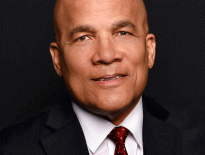Almost half of Romanians are in debt, while 39% say that they don’t pay their debt on time, and 29% never create a budget. These figures, based on the most recent national studies, reflect Romanians’ values and financial literacy, but they can also represent the starting point of a conversation about “good debt” and “bad debt.”
Avoiding debt seems to have become a utopian dream for more and more people, although the degree to which they are indebted differs, as well as the type of debt, the possibilities to return it, and the financial objectives of the debtor. Ending one’s debt is much more difficult than people imagine when they take out a loan, and most of the time there is no easy way to financial freedom.
Strict measures are the safest way to go, says financial expert Dave Ramsey, who claims that Americans are living through an epidemic of debt, the causes of which must be looked for in the individual behaviour of people. Romanians are no strangers to this epidemic, even though we experience it at a different scale and, partially, for different reasons.
The statistics we dislike
Given that only 8% of Romanians pay off their debt responsibly, and 77% feel no moral pressure if they don’t pay, creditors’ fears that they will not be paid back the money they lent is not unjustified, the authors of the study maintain. The study also showed that 37% of Romanians think that they have enough money to lead a decent life and that half of them do not save on a monthly basis, while the other half will become indebted. At the same time, 16% of Romanians who have taken out a loan do not think that paying it off is a priority, while 43% do not think that repaying is necessary just because it is the right thing to do. A quarter of the respondents plan their budget less than once a month, while 29% never do.
Even if the pandemic has led to Romanians borrowing more, the study reveals a tendency brought to light by previous studies as well, namely the low responsibility in returning financial loans, declares Cosmina Marinescu, CEO of Kruk Romania.
The loans that were the easiest to access are also the ones that are the most difficult to repay, while mortgage loans register the lowest rate of poor credit (4,9%), according to a 2015 study by the Association for Managing Commercial Debt. Income reduction, excessive debt, unpredictable events, poor debt management, or the loss of a job were among the reasons mentioned by those who were behind on paying their debt.
Even though the stress generated by the obligation of paying off debt is not at all negligible, there is the generalised conviction that we cannot rid ourselves of debt, either because of unexpected events, which impact us financially, or because the time it takes to save up money to acquire certain necessary, or even essential goods, is unacceptably long.
Are individual loans inevitable, or could we avoid most of them? This is a current question, which can be answered starting from one of the most important purchases in our lives—our home.
Lifelong tenant? Or indebted for two to three decades?
Mortgage loans have always been thought of as justifiable, safe debt, but the Great Recession or the subprime mortgage crisis (when loans were granted to people without an income or a job, hence with low solvency) has shown that they can carry a high degree of risk, said financial journalist Janet Alvarez.
Even if a mortgage loan remains a relatively safe investment, the journalist recommends that one have the right information, caution, and rigorous planning before accessing this kind of debt. For example, a future debtor should make sure that the monthly payment is lower than 28% of their gross monthly income, should carefully assess the conditions of the loan, should take into account the possibility of being fired, of their family increasing in size, or other unpredictable events that would impact their budget, as well as have a solid understanding of the market at the time of contracting the debt.
Entrepreneur David Bach thinks that owning a house is an escalator to a high financial status. In his opinion, millennials are wrong when they display disinterest in becoming owners, because they diminish their chances of material prosperity. A homeowner is, on average, 38 times richer than a tenant, says the millionaire, who has increased his wealth by buying three houses whose prices skyrocketed.
Bach’s calculations indicate that 30 years spent as a tenant involve hundreds of thousands of dollars spent on not owning anything in the end, while, with the same amount of money, invested in a mortgage, and after the same amount of time, one can end up with a property that they could sell or permanently own.
The entrepreneur believes that the monthly payment of the mortgage should not go above 30% of one’s salary, and the down payment for buying a home should be at least 10% of its value. What is good to know is that the dream of becoming a homeowner is easier to fulfil if they accept that their first house will not always be their dream house, says Bach.
There are also experts who think that a mortgage only seems to be a good investment. For financial adviser Peter Mallouk, buying a house can be equated with a “terrible investment,” even when the value of the house increases. Mallouk outlines some calculations to support his idea, emphasising the fact that the difference between the value of the rent and that of the mortgage loan, if significant and well invested, will almost certainly bring more substantial financial benefits in the long run than buying a house.
This idea is also supported by entrepreneur Ramit Sethi, a millionaire and author of the I Will Teach You to be Rich bestseller, under the proviso that before reaching a decision one must have a very exact picture of their own financial situation and they must analyse the ratio between the average price of rentals and the average price of houses in a given area.
However, one major benefit of a mortgage could be that it represents a sort of forced saving, concludes Mallouk, who emphasises that when it comes to the most important acquisition in one’s life, one should not only master mathematical calculations, but should also make as precise an estimate as possible about how things will evolve in the next two to three decades.
Contrary to popular wisdom, it is better to live as a tenant and save up money, says Rich Arzaga, a professor at the University of California, Berkeley. A house is not an investment, with all the expenses it generates (from taxes to renovation-related costs), while the status of a tenant gives one the freedom to efficiently invest all this money.
After examining 250 properties in the US and calculating the financial impact of owning a home, Arzaga concluded that “100% of the time it is better to rent rather than to own.”
Although these calculations seem to apply to Americans rather than Romanians, the two societies will grow surprisingly closer in the not-too-distant future, wrote professor Marius Cruceru. The professor has constantly gone back to the subject of debt on his blog, not as a financial expert, but as a long-term tenant, who has finally managed to buy a house.
He did so not by resorting to a bank loan (an idea he dislikes because of the plethora of complications and risks) but by saving and exploring creative ideas, because, apart from the well-known path which seems impossible to avoid, there are always other ways too, such as that of “decent poverty,” which he confesses to having followed for decades on end—a choice that has brought him spiritual and family gains as well.
The fact that not even experts have agreed on the utility of a loan that is considered one of the safest and most needed types of loans makes us wonder whether there is indeed a “good type of debt”—and if so, how we should differentiate it from the “bad” type.
What we should know about “good debt” versus “bad debt”
The best image of what being indebted involves is walking on quicksand, writes Andrew Orvedahl, in an article that analyses in very precise detail the uncontrollable area of debt. Life does not seem bad at all when the sand reaches your ankles, but buying on credit slowly sinks you in, in a way that you can barely notice, until you realise that your mobility is gone and that it will take years of work to pay off your debt, notes Orvedahl.
For the chaos to be complete, enter the need to acquire something new, in order to sweeten the pressure of deadlines and debt. Therefore, in his case, what stopped his financial free-fall was in the end the refusal of banks to issue a fifth credit card—the “most merciful decision” they could have made in the case of a client who had no self-control and was waiting for a miraculous rescue instead of drastically reducing his spending, admits the author.
Orvedahl’s story bears a striking resemblance to thousands of other stories, which indicate how vague the definition of what is necessary has become for our generation, and how irresistible our wish to immediately have whatever we want (but also what we need) can be, forgetting that we are actually pawning a future about which we know nothing.
Still, is there such a thing as “good” debt? Mortgage loans are usually placed in this category, as well as student loans or loans for starting or expanding a business. Yet the economic and social context in which we live has brought a lot of nuances to the distinction between the two types of debt, claims Janet Alvarez.
The first question we need to ask ourselves before taking out a loan is whether the burden the debt places on our shoulders somehow outweighs the benefits. If you believe that after repaying your loan and paying the interest you will have gained more than you would have had by using that money in other ways, and if there is nothing better that could have been achieved with that investment of time and money, then the loan was probably justified.
In general, what is considered to be “good” debt is what has the potential to improve our financial situation but also to change our lives in ways that are significant to us, and “bad” debt is focused on getting the money for consumption purposes or for goods that do not generate an income (buying a car can be very necessary, but the truth is that it starts losing its value the moment it leaves the store).
Any debt that exploits our desire for instant gratification is surely bad debt.
Student loans are, in general, a good idea, if we take into account the fact that people with a higher education earn 66% more throughout their lives than people without a degree, according to American researchers (in the US, mortgages and student loans have a relatively low-interest rate and the interest paid can be deduced from taxes).
Even so, a student loan should not be taken out without a careful analysis, writes Chelsea Brennan, the author of an article published in Forbes magazine: will the future workplace bring a level of income that will easily allow paying off the debt or is it perhaps better for the young person to turn to a different profession, or to follow the courses of a less costly school?
A good rule is that of limiting the loan to an amount that is 1.5 times higher than the salary estimated for the first year of work, says Brennan.
The usefulness of debt depends on many more factors, including a person’s financial situation and implicitly the amount of money they can afford to lose. Depending on the context, and on several personal factors, some debts can prove to be beneficial to certain people, but detrimental to others.
And what we must not forget is that even good debt is skating on thin ice—by assuming that we will reach our financial objectives and that the future will follow a similar trajectory to past experience, although nobody can guarantee that.
How to escape both “good” debt and non-performing loans
A declared enemy of what he calls “modern usury,” American financial expert Dave Ramsey thinks that, as long as one has even a small amount of debt, one cannot truly be free. The host of a radio show (“The Dave Ramsey Show,” the third most followed show on a national level), Ramsey catches the attention of millions of listeners (including millennials buried in debt) who want to find their way towards financial freedom.
“If you’re working on paying off debt, the only time you should see the inside of a restaurant is if you’re working there.” Although his advice is incisive and not at all in line with today’s consumerist culture, Ramsey has radically changed the trajectory of many lives, if we are to believe what his fans say. In any case, his debt relief program has been widely adopted and taught, including by churches, schools, and corporations.
Creating a household budget is the first step in the efficient management of debt. We need to know where every penny goes and to reduce any type of spending that is not essential. “Eat beans and rice, rice and beans,” says Ramsey, using a metaphor in order to express the need to resist temptation to sweeten the austerity required by paying off debt. Those who think that this strategy of paying off debt is too harsh are reminded by the financial expert that Americans (and not just them) are living through an epidemic of debt that resembles drug addiction.
In fact, putting the numbers down on paper is a better tactic than just calculating things in one’s mind – it offers a bigger picture of the situation, without having to rely on our (oftentimes selective) memory.
Saving up approximately 1,000 dollars, which would represent an emergency fund for unforeseen events, is another step recommended by Ramsey. This should not ever be a fund that should be accessed for non-essential spending, but one that is reserved for real emergencies (such as fixing your car), meaning the saved amount will decrease the risk of contracting new debt.
Paying off debt by using the snowball method—this could last for years, but Ramsey insists that it is essential to pay off debts one by one, starting with the smaller ones. When one debt is out of the way, the satisfaction of the first success provides a strong impetus to tackle the next debt.
“It’s emotion that got you into debt, so it’s emotion that’s going to get you out,” says financial analyst Derek Sall. And he seems to know what he is talking about because this method of reimbursement has helped him return a six-figure debt. The snowball method continues to be the most efficient way of paying off debt, researchers from the Harvard Business Review say, explaining that the motivation to continue to pay is augmented by the feeling of progress brought on by repaying small debts.
Some experts advise clients with low-interest rates to let the money work in their favour by paying the minimum necessary and investing the rest of the money. Nevertheless, not everyone feels at ease when it comes to investing, and if you don’t want or don’t know how to invest, aggressively paying off debt is better than wasting your money, notes Danielle Harrison, founder of the Harrison Financial Planning company.
Building an emergency fund that covers 3–6 months of your expenses is the next step that must follow paying off all of your debts, apart from the mortgage loan, says Ramsey. This represents a safety net for big crisis situations, which become much easier to handle if you can fully pay for them with your savings. Although the amount that needs to be saved seems large, the reality is that once the debts have been liquidated, it only takes discipline for the money that was previously directed to the bank to be redirected to this savings fund.
In fact, after paying off the last debt, saving should become a way of life, even if the amount that is being saved is not that significant.
Paying off the mortgage is the last step towards becoming debt free, so it’s better to do it sooner rather than later. The more money you allocate to this debt, the more money you can save by paying a smaller interest. And the peace that comes with knowing that you owe nothing and that you are in effect the owner of the house you’re living in is priceless.
Getting rid of “good” debt is healthy as well
No matter how difficult it may be to pay off debt, the end of the journey is filled with incredible psychological rewards, researchers say.
According to an inventory of stressful events, which was conducted in 2009 by the Society of Occupational Medicine, “getting into debt beyond the means of repayment” has gotten a score of 82/100 for men and 86/100 for women.
A large financial debt with respect to the financial means at one’s disposal is associated with a higher level of stress and depression, higher diastolic arterial pressure, and a self-declared poorer state of health, concluded a study published in 2013.
Stress is a determining factor in many medical conditions, from heart conditions to diabetes, but people usually report fewer physical symptoms and a better overall state of health after they manage to pay off their debt, says psychologist Carole Stovall.
Continuous financial stress impacts all organs, including the brain, while paying off debt eliminates fear and stress, says psychiatry professor Gail Saltz. After we reach a certain financial level, money no longer makes us happy, but the more debt we accumulate, the less happy we are, says Saltz.
In a society of abundance, it is easy to link buying things with the promise of happiness, but the truth is that happiness is eaten away by the financial side-slips occurring in the chase to purchase goods that aren’t really necessary. Even if there is a certain emotional impact of that purchase, the truth is that we expect to get much more happiness than what we actually get from an acquired good, says psychology professor Ryan Howell. On the other hand, financial stress “eats a person’s soul in a way that’s very different than other parts of our lives,” says Howell.
Dramatic events, impossible to control, can push us into debt, but the reality is that some financial difficulties are caused by improper management of financial resources. Not everyone who is debt free or who focuses on paying off debt in a responsible way is rich, but most of them probably have a mindset that is not easily influenced by the slogans of today’s consumerist society.
They are those who know they won’t save money by buying a product that they don’t need just because it’s on sale, those who practise uncomfortable financial discipline instead of giving in to compulsive buying, those who understand that even “good” debt comes hand-in-hand with limiting their future options. And above all, they are those who think things through when it comes to their purchases, being aware that the currency in which they pay for them is not the dollar, but life itself.
Carmen Lăiu is an editor at Signs of the Times Romania and ST Network.




















